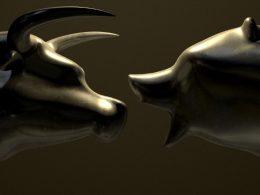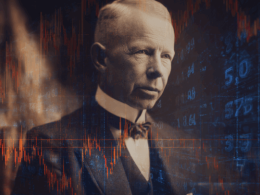I’m going to play a minor trick on you today because the subject of my talk is the art of stock picking as a subdivision of the art of worldly wisdom. That enables me to start talking about worldly wisdom—a much broader topic that interests me because I think all too little of it is delivered by modern educational systems, at least in an effective way.
And therefore, the talk is sort of along the lines that some behaviorist psychologists call Grandma’s rule after the wisdom of Grandma when she said that you have to eat the carrots before you get the dessert.
The carrot part of this talk is about the general subject of worldly wisdom which is a pretty good way to start. After all, the theory of modern education is that you need a general education before you specialize. And I think to some extent, before you’re going to be a great stock picker, you need some general education.
So, emphasizing what I sometimes waggishly call remedial worldly wisdom, I’m going to start by waltzing you through a few basic notions.
What is elementary, worldly wisdom? Well, the first rule is that you can’t really know anything if you just remember isolated facts and try and bang ‘em back. If the facts don’t hang together on a latticework of theory, you don’t have them in a usable form.
You’ve got to have models in your head. And you’ve got to array your experience—both vicarious and direct—on this latticework of models. You may have noticed students who just try to remember and pound back what is remembered. Well, they fail in school and in life. You’ve got to hang experience on a latticework of models in your head.
What are the models? Well, the first rule is that you’ve got to have multiple models—because if you just have one or two that you’re using, the nature of human psychology is such that you’ll torture reality so that it fits your models, or at least you’ll think it does. You become the equivalent of a chiropractor who, of course, is the great boob in medicine.
It’s like the old saying, “To the man with only a hammer, every problem looks like a nail.” And of course, that’s the way the chiropractor goes about practicing medicine. But that’s a perfectly disastrous way to think and a perfectly disastrous way to operate in the world. So you’ve got to have multiple models.
And the models have to come from multiple disciplines—because all the wisdom of the world is not to be found in one little academic department. That’s why poetry professors, by and large, are so unwise in a worldly sense. They don’t have enough models in their heads. So you’ve got to have models across a fair array of disciplines.
You may say, “My God, this is already getting way too tough.” But, fortunately, it isn’t that tough—because 80 or 90 important models will carry about 90% of the freight in making you a worldly-wise person. And, of those, only a mere handful really carry very heavy freight.
So let’s briefly review what kind of models and techniques constitute this basic knowledgethat everybody has to have before they proceed to being really good at a narrow art like stock picking.
First there’s mathematics. Obviously, you’ve got to be able to handle numbers and quantities—basic arithmetic. And the great useful model, after compound interest, is the elementary math of permutations and combinations. And that was taught in my day in the sophomore year in high school. I suppose by now in great private schools, it’s probably down to the eighth grade or so.
It’s very simple algebra. It was all worked out in the course of about one year between Pascal and Fermat. They worked it out casually in a series of letters.
It’s not that hard to learn. What is hard is to get so you use it routinely almost everyday of your life. The Fermat/Pascal system is dramatically consonant with the way that the world works. And it’s fundamental truth. So you simply have to have the technique.
Many educational institutions—although not nearly enough—have realized this. At Harvard Business School, the great quantitative thing that bonds the first-year class together is what they call decision tree theory. All they do is take high school algebra and apply it to real life problems. And the students love it. They’re amazed to find that high school algebra works in life….
By and large, as it works out, people can’t naturally and automatically do this. If you understand elementary psychology, the reason they can’t is really quite simple: The basic neural network of the brain is there through broad genetic and cultural evolution. And it’s not Fermat/Pascal. It uses a very crude, shortcut-type of approximation. It’s got elements of Fermat/Pascal in it. However, it’s not good.
So you have to learn in a very usable way this very elementary math and use it routinely in life—just the way if you want to become a golfer, you can’t use the natural swing that broad evolution gave you. You have to learn—to have a certain grip and swing in a different way to realize your full potential as a golfer.
If you don’t get this elementary, but mildly unnatural, mathematics of elementary probability into your repertoire, then you go through a long life like a one-legged man in an asskicking contest. You’re giving a huge advantage to everybody else.
One of the advantages of a fellow like Buffett, whom I’ve worked with all these years, is that he automatically thinks in terms of decision trees and the elementary math of permutations and combinations….
Obviously, you have to know accounting. It’s the language of practical business life. It was a very useful thing to deliver to civilization. I’ve heard it came to civilization through Venice which of course was once the great commercial power in the Mediterranean. However, double-entry bookkeeping was a hell of an invention.
And it’s not that hard to understand.
But you have to know enough about it to understand its limitations—because although accounting is the starting place, it’s only a crude approximation. And it’s not very hard to understand its limitations. For example, everyone can see that you have to more or less just guess at the useful life of a jet airplane or anything like that. Just because you express the depreciation rate in neat numbers doesn’t make it anything you really know.
In terms of the limitations of accounting, one of my favorite stories involves a very great businessman named Carl Braun who created the CF Braun Engineering Company. It designed and built oil refineries—which is very hard to do. And Braun would get them to come in on time and not blow up and have efficiencies and so forth. This is a major art. And Braun, being the thorough Teutonic type that he was, had a number of quirks.
And one of them was that he took a look at standard accounting and the way it was applied to building oil refineries and he said, “This is asinine.”










